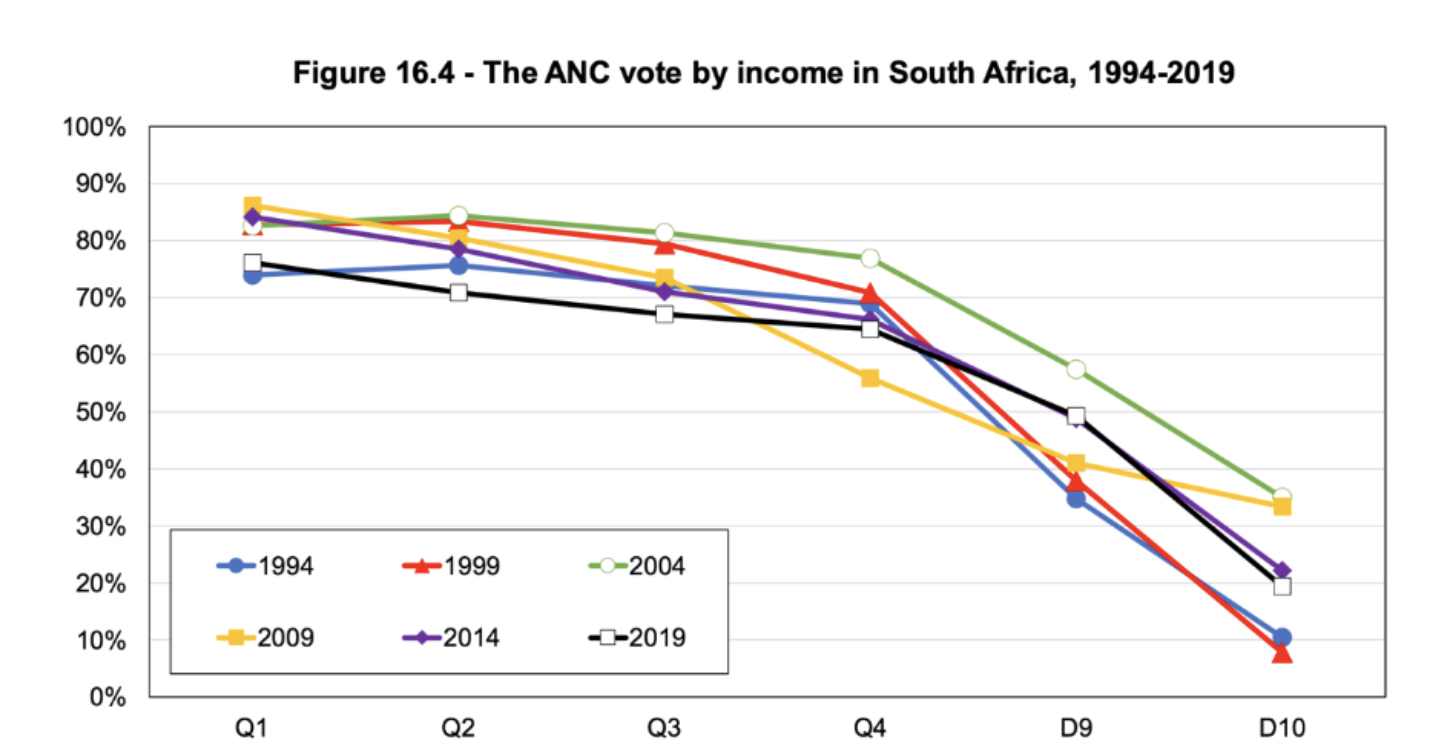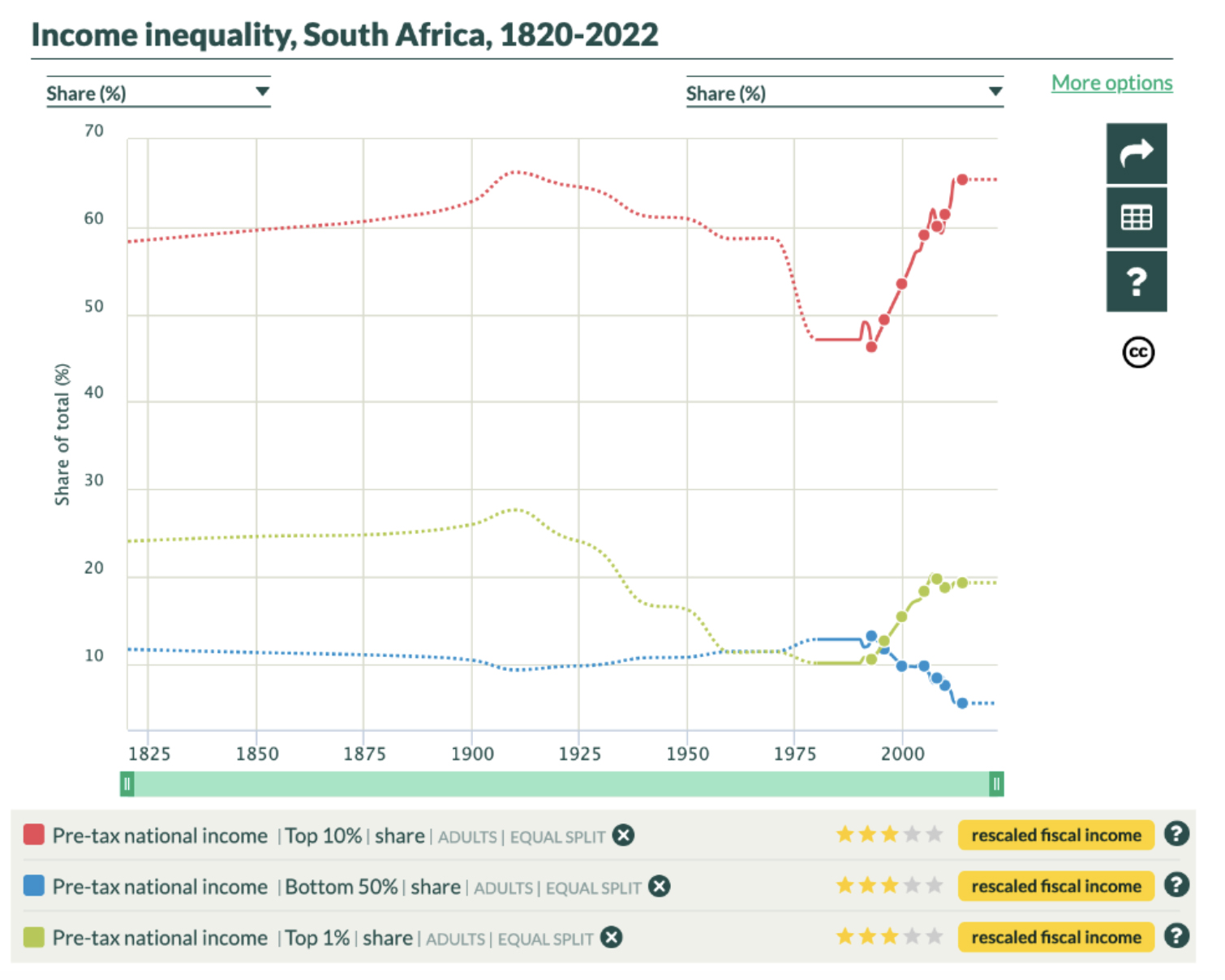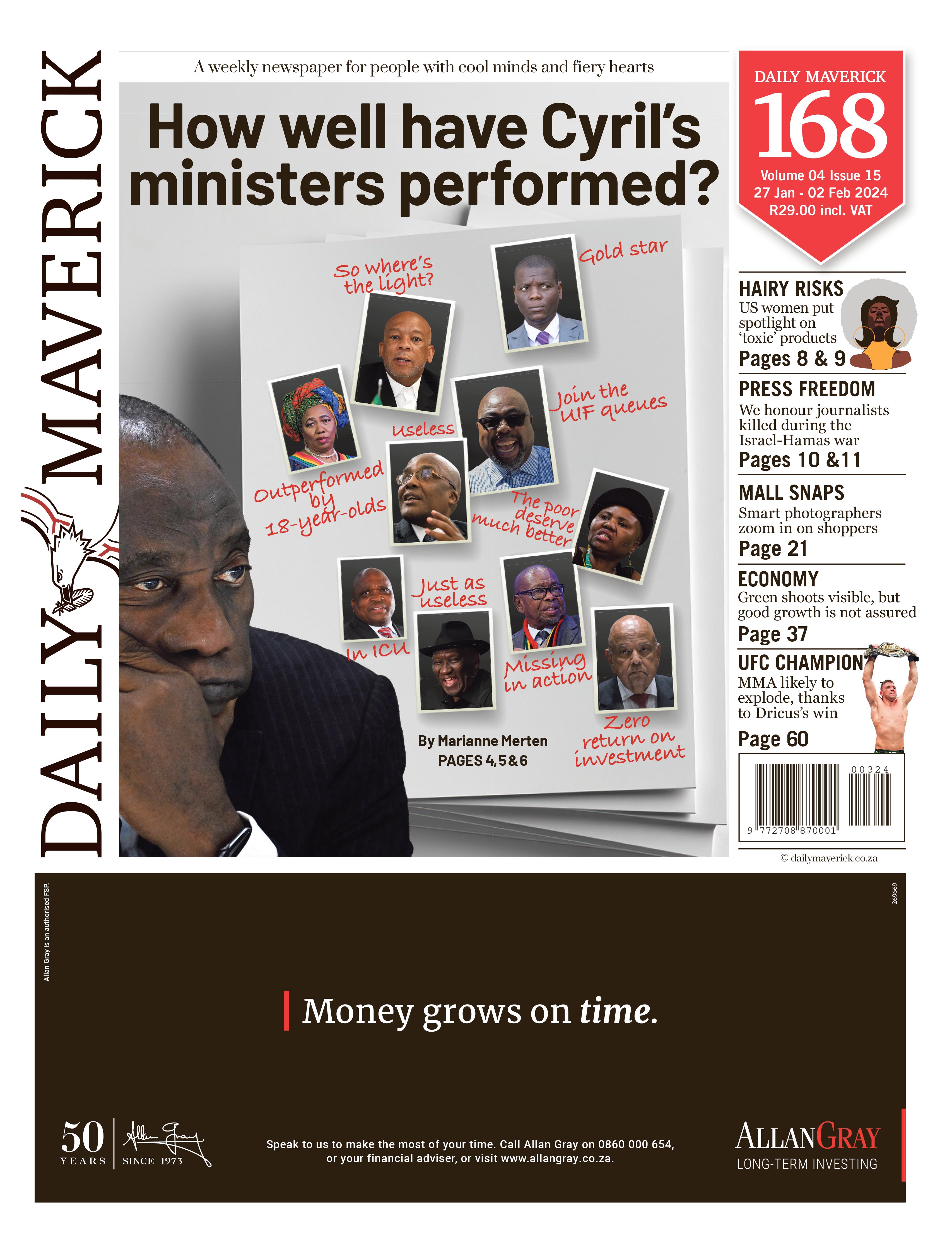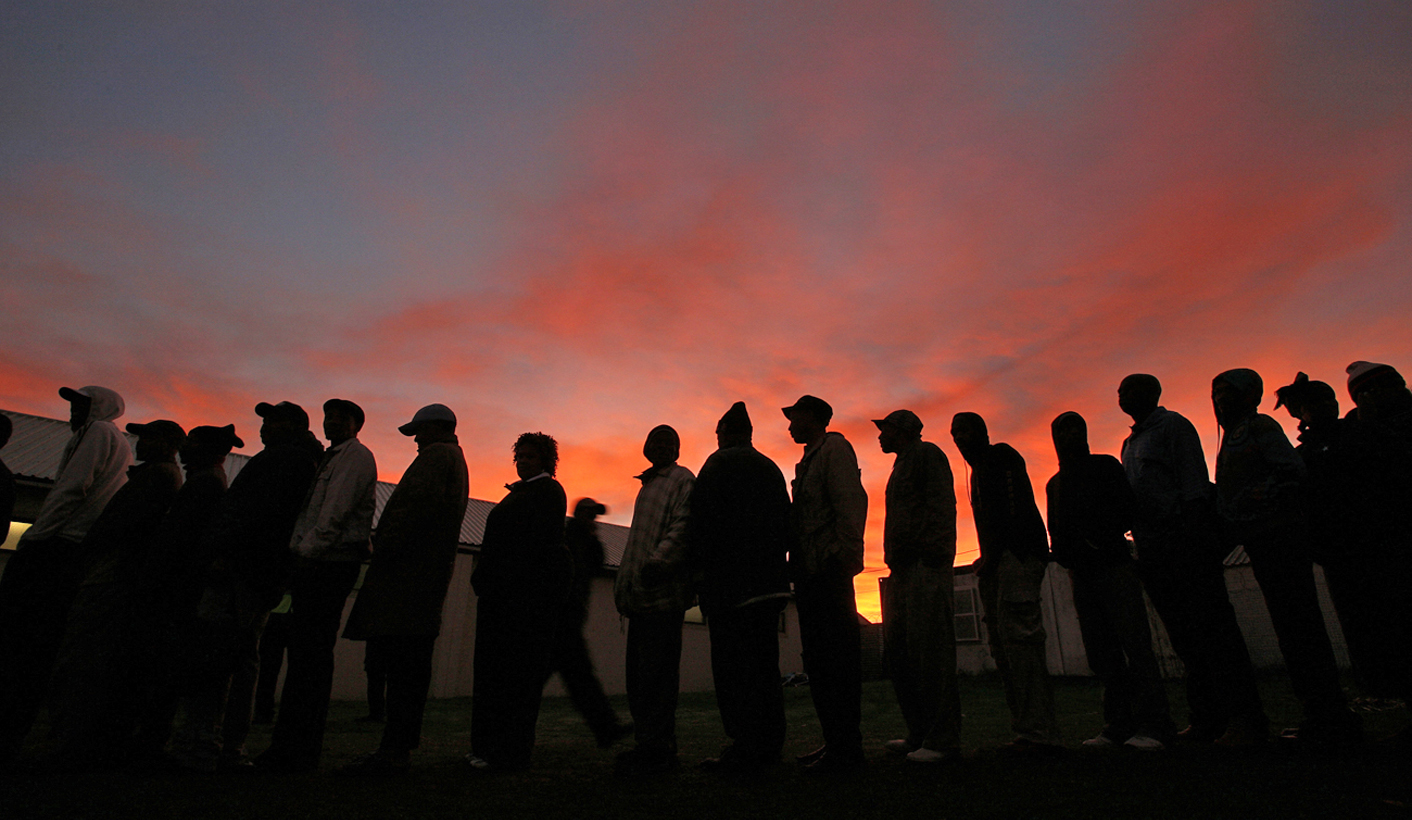Dear DM168 reader,
Last week I attended a personal development course for an MBA I am doing at Henley University and there is something our lecturer Chris Dalton said that struck a chord with me. He spoke about personal responsibility and universal values – values that all of us humans hold dear, as opposed to the many irritations that pull us apart and get us to dig deep trenches around our differences to the “other”; differences that lead to polarisation, hate and, in their most extreme cases, violence and war. An example he used was how, when we are stuck in interminable traffic jams, we get flustered and blame everybody around us but never admit that “we are the traffic”. Everyone who drives a vehicle at rush hour is the traffic.
This made me think about how we always see ourselves as “us and them” in South Africa. They (the majority of South Africans) voted for the ANC, so they are to blame for the messed-up state South Africa is in. But are we not all South Africans, irrespective of whether or not we voted for the ANC? If the ANC, over 30 years, has always won the majority of votes despite years of pillaging state coffers, what does it say about us South Africans – and that includes the South Africans in opposition political parties who have been trying and failing to win votes off the ANC for the past 30 years? What is it about opposition leadership, narratives, opposition behaviour and opposition offerings to South Africans that has seen the closest percentage vote to the ANC in every election since 1994 to be the Democratic Alliance in 2014 (at 22.2%)?
There is a fascinating book titled Political Cleavages and Social Inequalities by Amory Gethin, Clara Martínez-Toledano and Thomas Piketty that analyses the links between voters’ political preferences and socioeconomic characteristics in 50 democracies around the world, including South Africa.
The graph below shows their analysis of how between 74% and 86% of the country’s bottom 20% income earners have consistently supported the ANC in every election from 1994 to 2019, while between 8% and 35% of the country’s top 10% of income earners supported the ANC. Interestingly, the top earners voted the lowest for the ANC at 8% in 1999 when Thabo Mbeki took over from Nelson Mandela, and the highest at 35% for the ANC in 2004, Mbeki’s final term, and 2009, Jacob Zuma’s first term.

Why does the official opposition, the DA, not attract as consistent a number of low-income or no-income voters, who comprise the majority of South Africans? I would argue that it is a middle-class organisation, perceived by the majority of voters as a party for the wealthy that tried race-based fronting by black leadership to lure black voters and then condescendingly called that attempt a failed experiment once its more conservative white voters moved to the Freedom Front Plus in the 2019 election. The DA analysed the 2% drop under Mmusi Maimane as a fail, but has it or any opposition party cracked the code that the ANC has long worked out through its social democratic offering to the poor to win over and woo the majority of low-income and no-income voters? Not yet. Will the DA’s stasis as a minority middle-class party open the way for the radical, communist-sounding but capitalist-living EFF to take over the gap as the ANC grapples to turn around and self-correct from its State Capture carnage? Or does the answer lie elsewhere?
A fascinating article by Carol Paton in News24 points to backroom machinations by some doyens of big business who seem to be trying to deal with the dead weight of the DA and Cyril Ramaphosa’s ANC by suggesting one of their own to take over the leadership of the DA from John Steenhuisen and Helen Zille, and to woo disaffected ANC voters to the DA. The person in question is former banker Roger Jardine, who recently launched a new party, Change Starts Now. His political credentials lie in his father Bill’s UDF history and a sojourn in 1995, at the age of 29, as the director general of Arts, Culture, Science and Technology.
What is gobsmackingly ridiculous about this (if Carol Paton is correct about these machinations) is the notion that a much wealthier and more educated, slightly more melanin-enhanced face with a tangential link to the anti-apartheid struggle would be able to woo the majority of poor and low-income South Africans to vote for the DA more than John Steenhuisen and the current DA leadership crop can.
Come on, does having too much money really make you so blind to the class and racial inequality realities of South Africa? Does money make you believe that the poor are stupid? Steenhuisen, to his credit, has admitted to Paton that he met with Jardine and the funders, and walked away when the ultimate outcome became unclear.
It appears that ANC stalwart Mavuso Msimang also managed to persuade Jardine to build Change Starts Now, even though Jardine’s funders wanted him to woo DA voters. The funders also seemed to not be interested in Jardine working with Songezo Zibi’s Rise Mzansi because the former Business Day editor and writer would not be coerced into joining the DA-led multiparty coalition. I have gained even more respect for Zibi for not bowing down to big business pressure.
For anyone who wants to know who benefitted the most from the ANC’s 30 years at the helm of government, have a look at the table below of income inequality in South Africa from the World Inequality Report from 1820 to 2022. The top 10% of the wealthiest South Africans were losing lustre under apartheid, dropping to their lowest ebb between 1976 and the mid-1980s. Life under the ANC from 1994 to 2022 has been pretty peachy, with the richest 10% almost matching the great mining heydays before the Nationalist Party took over in 1948 and the richest 1% also doing dramatically fine, thank you.

According to data by the World Inequality Lab, 3,500 adults earn more than the poorest 32 million people in South Africa and while black South Africans have outnumbered whites in the richest 10% of the population, the gap between South Africa’s richest and poorest hasn’t narrowed.
Dear 1% and 10% of the country’s wealthiest. Here, in a few words, is the secret. It’s not about them, it’s about us. We are the traffic!
Unless we all commit to breaking the poverty trap, by doing much more than paying lip service to create jobs and opportunities for the upliftment of the poor beyond paltry social grants and charity while hiding wealth in tax havens and Swiss bank accounts, we will remain stuck in a festering pit of stagnation. Every political party needs to convince voters that it will change the lives of the poor for the better. And better still, do it.
In our lead story today, associate editor Marianne Merten unpicks the performance agreements of key ministers in President Cyril Ramaphosa’s Cabinet. These are the ANC head honchos who promised the majority of South Africans a better life for all. Some fared better than others but, on the whole we, the people, deserve more. Share your views with me at heather@dailymaverick.co.za and I will publish them on our letters page.
Yours in defence of truth,
Heather
This story first appeared in our weekly Daily Maverick 168 newspaper, which is available countrywide for R29.





